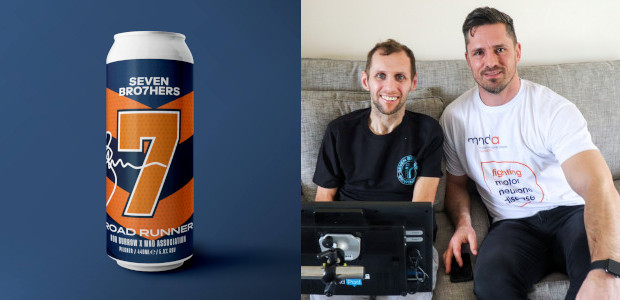Dr Knut Moe gives the lowdown on causes of hair loss and common health myths
With a constant stream of new health trends in the media, it can be difficult to determine what’s fact and what’s fad. Around 14.5 million people are affected by hair loss in the UK and with stress being a major contributor, Dr Knut Moe, Medical Director of men’s health brand Sons, looks at common health myths and gets to the root of the problem.
Why am I losing hair?

It is important to note that despite being a taboo topic, hair loss IS extremely common, affecting an estimated 6.5 million men and 8 million women in the UK. Hair loss is primarily down to genetics, so cannot be prevented entirely, however it can also be accelerated by other factors including stress and a poor diet. With anxiety up 57% through the pandemic, it is no surprise there is an increase in people experiencing symptoms of hair loss. Prolonged periods of physical and psychological stress are key causes of the relatively common condition Telogen Effluvium, which shifts the hair cycle into a shedding phase, which causes a period of increased shedding. If you are losing hair, it is important to deal with elements including stress and poor diet, and work on improving these first off.
If stress is a contributor to poor health and hair loss, how can I reduce this?
Firstly, it is important to recognise that you are stressed or struggling mentally, something which is often hard to come to terms with. Having to deal with a huge change to our normal routines over the past year has resulted in a great deal of uncertainty for many people, as well as increased levels of stress and anxiety, which is indeed a contributing factor to poor health and hair loss. As mentioned, acknowledging your feelings is hugely important. This may mean taking some time out to really think about any anxieties/worries you have and writing them down. Perhaps it is job uncertainty, fear of relationships breaking down, or worries about health complications. Sometimes you will not know what exactly is contributing to your stress, but it is good to stop and think about what it is that is making you unhappy or worried. The next step is to talk to someone – whether that be scheduling in a conversation with your employer, voicing feelings to a partner or friend, or speaking to your GP or a counsellor. Chances are, just voicing your feelings will lift a weight off your chest, and you can then seek advice and move forwards with your stresses, working to resolve them. Stress reduction techniques are really important to incorporate into your day-to-day schedule and practising mindfulness can be a great way to find peaceful and calming moments during the day. Remember, stress can be overwhelming and completely take hold of you, unless you can find a way to overcome that stress.
Is it true that you cannot prevent hair loss?
Yes and no, you can halt it, but you can’t stop the genetics of hair loss. However, external elements (stress, diet, even post pregnancy) can affect your hair and having a good hair care routine is essential. It is much simpler to maintain the hair you have rather than attempting to regain hair already lost. As everybody is different, it is important to seek medical advice if you have any concerns, however there are treatments and supplements easily available in the UK, such as minoxidil 5% solution which can help with blood flow to the scalp, and Biotin, a vitamin which helps ensure your hair has the necessary tools it needs to grow.
Does caffeine make your hair grow back?
Studies have trialled caffeine-based topical liquids as a remedy for hair loss, and whilst they reflected an increased growth phase of hair follicles, the only treatment clinically proven to work for hair loss is Minoxidil. Caffeine based topical liquids, which are very different to simply consuming caffeine in its common form, such as such as coffee, can be beneficial. However, studies are limited.
Are there specific foods I can eat to make my hair grow?
There have been numerous articles on foods that will make your hair grow, from spinach and blueberries, to fermented cabbage and extracts found in specific plants and trees. However, it is much more about an overall healthy lifestyle, meaning a balanced diet and keeping hydrated. You should try and make sure you’re not lacking in any vitamins or minerals, as these can inhibit your body’s natural processes, for example deficiencies in Vitamin D and Vitamin B have been linked to weak hair and consequently hair loss, as well as other issues including fatigue and memory loss. This means being more mindful of what you are eating, making sure you are getting enough of each food group and not cutting things out, and being aware of any supplements you may need to take if you make any dietary changes, for example taking B12 if switching to a Vegan diet.
Drinking enough water is also hugely important. Not only does it help keep you full, aid digestion and regulate blood pressure, but due to 25% of each strand of hair being made up of water, staying hydrated prevents your hair from becoming brittle and breaking easily. It is recommended that you drink around two litres of water per day to keep your health in check, which should be set as a benchmark to achieve, but surpass if possible.
If you’re concerned about your hair, head to sons.co.uk for clinically proven hair loss treatments direct to your door.









